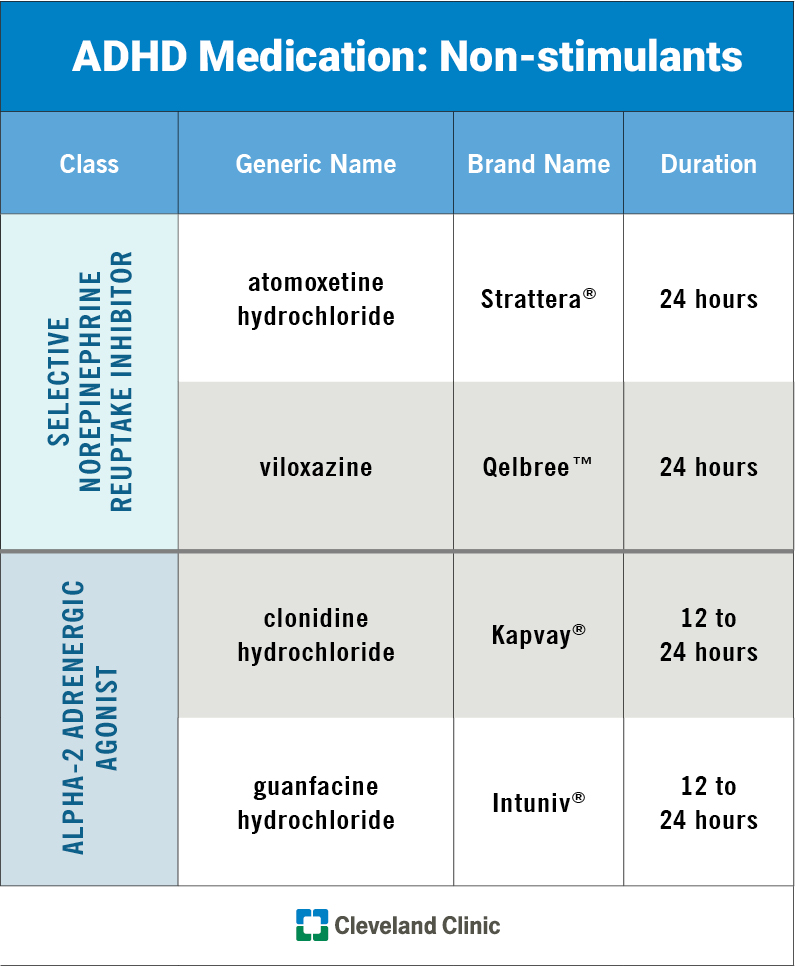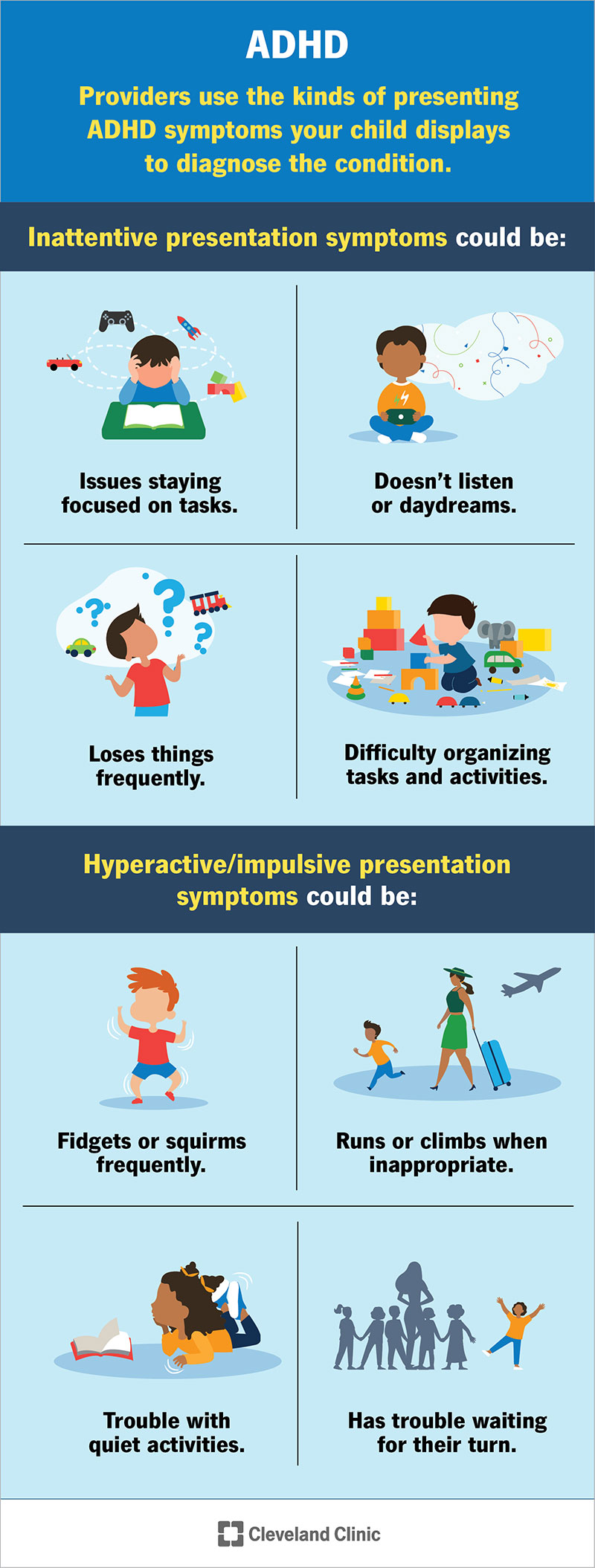The Benefits of Customized ADHD Therapy Strategies for Better Results
The implementation of tailored ADHD treatment strategies has actually emerged as an essential method in enhancing restorative end results for individuals impacted by this problem. By recognizing the special indications of ADHD in each person, these tailored interventions promote higher involvement and motivation, ultimately causing extra effective coping strategies. This customized strategy not just addresses academic and work difficulties yet additionally fosters improved social partnerships and overall quality of life. The real level of these benefits increases crucial concerns regarding the certain parts that add to long-lasting success and exactly how they can be enhanced for varied populaces.
Comprehending ADHD Variability
Although Attention-Deficit/Hyperactivity Disorder (ADHD) is commonly perceived as a particular problem, its symptoms can differ significantly among people. Gender differences likewise play a duty, as males are a lot more regularly diagnosed with ADHD and commonly display much more obvious signs and symptoms, whereas females may offer with much less obvious inattentiveness.
Moreover, people with ADHD might experience a spectrum of emotional and behavioral difficulties, such as anxiousness or opposite defiance, that can complicate diagnosis and treatment. The communication of these variables can lead to diverse experiences of ADHD, necessitating a nuanced understanding of the condition. It is likewise worth keeping in mind that ADHD can offer differently across different cultural contexts, influencing exactly how symptoms are acknowledged and attended to. This understanding emphasizes the importance of recognizing ADHD as a multifaceted condition, which calls for personalized methods to therapy that consider the one-of-a-kind demands and experiences of each person.
Key Parts of Personalization
Individualized ADHD therapy strategies are based in a number of key components that ensure efficient administration of the disorder. A comprehensive analysis is vital, including standardized ranking scales, interviews, and behavior observations. This extensive evaluation permits clinicians to recognize the person's distinct signs and symptoms, strengths, and obstacles.
Second, the participation of several stakeholders, consisting of parents, educators, and the individual, adds to an alternative sight of the individual's needs. Cooperation fosters an encouraging environment that can adjust to the individual's context and way of life.
Third, treatment strategies ought to be adaptable and adaptable, enabling for modifications based on recurring feedback and the individual's advancing needs. This versatility makes it possible for the integration of different therapeutic approaches, such as behavior treatments, psychoeducation, and medication administration.
In addition, cultural and contextual aspects must be thought about. Identifying the person's background, values, and preferences makes certain that the therapy matters and respectful.
Lastly, routine follow-ups and analyses are important to keep track of development and make essential changes. By focusing on these find more info essential elements, personalized ADHD therapy strategies can considerably improve the efficiency of treatments, bring about improved end results for individuals with ADHD.
Enhanced Engagement and Motivation
To efficiently promote enhanced engagement and motivation in individuals with ADHD, it is vital to incorporate techniques that look here resonate with their interests and strengths. Personalized treatment strategies that straighten with a person's enthusiasms can lead to enhanced involvement in therapeutic activities, cultivating a feeling of possession and interest for the process.
Utilizing interactive and imaginative approaches can also significantly enhance inspiration. For instance, integrating gamification elements or real-world applications of abilities can make jobs a lot more enticing and pertinent. This not just captures attention yet additionally strengthens learning with enjoyable experiences.
In addition, establishing achievable and purposeful goals tailored to the person can reinforce motivation. When individuals see their progress towards directly substantial purposes, they are much more most likely to stay engaged. Routine feedback and acknowledgment of accomplishments can better endure motivation, developing a positive responses loop that urges continued initiative.
Lastly, promoting a supportive atmosphere where individuals really feel understood and valued can dramatically impact their involvement levels. When treatment strategies are created collaboratively, incorporating input from the person, they are more probable to feel spent in their journey, eventually bring about improved results in taking care of ADHD.
Improved Coping Techniques
Establishing boosted coping methods is critical for individuals with ADHD, as it furnishes them with reliable devices to navigate everyday difficulties. An individualized therapy plan permits the recognition of details coping mechanisms tailored to the individual's special demands and conditions - ADHD treatment. Techniques such as mindfulness, time administration abilities, and business approaches can be incorporated right into daily routines, fostering a sense of control and minimizing anxiousness
Mindfulness techniques, consisting see this of reflection and deep-breathing workouts, aid people with ADHD concentrate their focus and manage their feelings. Time administration methods, such as making use of timers or damaging jobs right into smaller, workable steps, can reduce feelings of overwhelm. Furthermore, business tools like coordinators and checklists can enhance efficiency and accountability.
Long-term Favorable End Results
Applying customized ADHD treatment plans can bring about substantial lasting positive outcomes for individuals. These customized techniques, which think about one-of-a-kind signs and symptoms, choices, and life situations, help with more reliable administration of ADHD signs over time. By concentrating on the certain demands of the person, these plans boost adherence to therapy protocols and foster better involvement in therapeutic tasks.

Furthermore, customized treatment strategies can substantially decrease the risk of comorbid problems, such as stress and anxiety and depression, which are often linked with ADHD. Early treatment and regular assistance help people develop resilience and coping approaches, advertising general psychological wellness.
Inevitably, the long-term favorable end results of individualized ADHD therapy plans not just improve the lifestyle for people but likewise add to their general health and success in various life domains. This all natural approach highlights the relevance of customized care in taking care of ADHD effectively.
Conclusion
